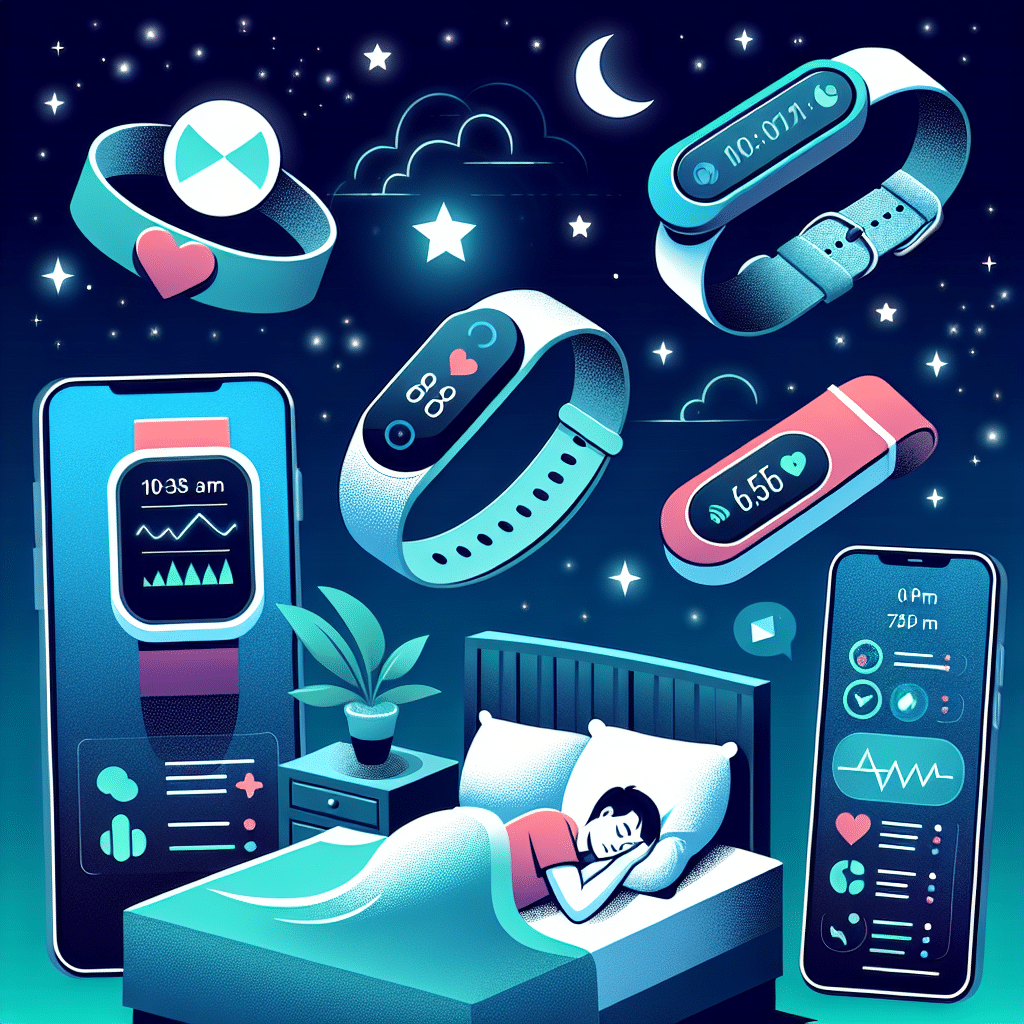Best Sleep Trackers for Adults
Understanding Sleep Trackers
Sleep trackers have gained popularity as a crucial element in managing sleep health. These devices or applications monitor your sleep patterns, providing insights into your sleep quality, duration, and cycles. Leveraging advanced technology, sleep trackers help you understand how to improve your sleep habits.
Key Features to Look For
When choosing a sleep tracker, consider features like accuracy, battery life, comfort, data analysis, and additional wellness metrics. Different trackers serve various needs, catering to casual users and serious sleep enthusiasts.
Top Sleep Trackers
1. Oura Ring
Overview: The Oura Ring is a sleek, discreet device that users wear on their finger.
Key Features:
- Tracks heart rate variability, respiratory rate, and body temperature.
- Uses infrared sensors to measure blood volume pulse during sleep.
Pros:
- Lightweight and comfortable for sleep.
- Impressive battery life up to 7 days.
Cons:
- The initial price can be high compared to traditional fitness bands.
Who It’s For: Ideal for minimalist users who appreciate detailed health insights without bulky gadgets.
2. Fitbit Charge 5
Overview: The Fitbit Charge 5 is an advanced fitness tracker known for its comprehensive health monitoring.
Key Features:
- Sleep score feature summarizing sleep quality and duration.
- Tracks light, deep, REM sleep stages.
Pros:
- User-friendly app interface with personalized insights.
- Built-in GPS allows for activity tracking without a smartphone.
Cons:
- Battery life lasts around 7 days depending on usage.
Who It’s For: Perfect for fitness enthusiasts looking to combine their workout and sleep tracking efforts.
3. Withings Sleep Tracking Mat
Overview: Unlike wrist-worn devices, this sleep mat fits under your mattress and continuously tracks various sleep stages.
Key Features:
- Monitors sleep cycles, heart rate, and breathing disturbances.
- Offers detailed sleep analysis on a companion app.
Pros:
- No need to wear a device, making it comfortable for all sleep styles.
Cons:
- Requires a smart mattress or compatible bed.
Who It’s For: Great for users seeking an unobtrusive sleep tracking solution.
4. Apple Watch Series 7
Overview: Apple’s flagship smartwatch incorporates advanced sleep tracking capabilities among its many features.
Key Features:
- Offers sleep tracking in conjunction with activity tracking.
- Integrates seamlessly with the Apple Health app for detailed insights.
Pros:
- Versatile with various apps for health and fitness.
- Long battery life and supports sleep mode.
Cons:
- Heavier than traditional sleep trackers.
Who It’s For: Best suited for Apple ecosystem users who want a multifunctional device.
5. Garmin Vivosmart 5
Overview: Garmin is renowned for its fitness-focused wearables, and the Vivosmart 5 is no exception, providing sleep insights alongside fitness metrics.
Key Features:
- Offers advanced sleep monitoring with sleep stages and insights.
- Monitors SpO2 levels overnight.
Pros:
- Slim and stylish design easily worn throughout the day and night.
Cons:
- The app interface could be improved for enhanced user experience.
Who It’s For: Ideal for Garmin fans wanting to monitor sleep alongside their fitness regime.
6. Xiaomi Mi Band 6
Overview: An affordable sleep tracker, the Xiaomi Mi Band 6 merges quality features with a budget-friendly price.
Key Features:
- Tracks multiple sleep stages and provides insights into sleep patterns.
- Affordable price point with solid battery life.
Pros:
- Extensive functionality including heart rate monitoring and fitness tracking.
Cons:
- Limited smart features compared to more expensive bands.
Who It’s For: Perfect for budget-conscious users looking for essential sleep tracking functionalities.
7. Sleep Number 360 Smart Bed
Overview: This innovative bed offers personalized sleep tracking within a smart bed experience.
Key Features:
- Automatically adjusts firmness based on sleep position and movements.
- Tracks breathing, heart rate, and sleep time.
Pros:
- Can help improve sleep quality with personalized adjustments.
Cons:
- High investment for a complete bedding system.
Who It’s For: Ideal for those willing to invest in luxury bedding for optimal sleep.
Factors Influencing Sleep Quality
While sleep trackers provide valuable data, remember that the quality of sleep depends on various factors such as:
- Sleep Environment: A cool, dark, and quiet environment often promotes better sleep.
- Lifestyle: Regular exercise and balanced nutrition contribute significantly to sleep quality.
- Stress Management: Mindfulness practices, including meditation, can reduce stress, enhancing sleep quality.
Maximizing the Use of Sleep Trackers
To make the most out of sleep trackers, regularly analyze your data and adjust your sleep routine accordingly. Consider tracking your sleep habits over time to identify patterns or potential issues.
Conclusion
Sleep trackers provide a fascinating insight into our nightly habits, allowing users to pinpoint areas needing improvement. Whether you choose a wearable device, an app, or a sleep mat, selecting the right tracker can lead you to a healthier sleep life. Explore these options based on your individual needs and preferences and embark on a journey toward improved rest and rejuvenation.
